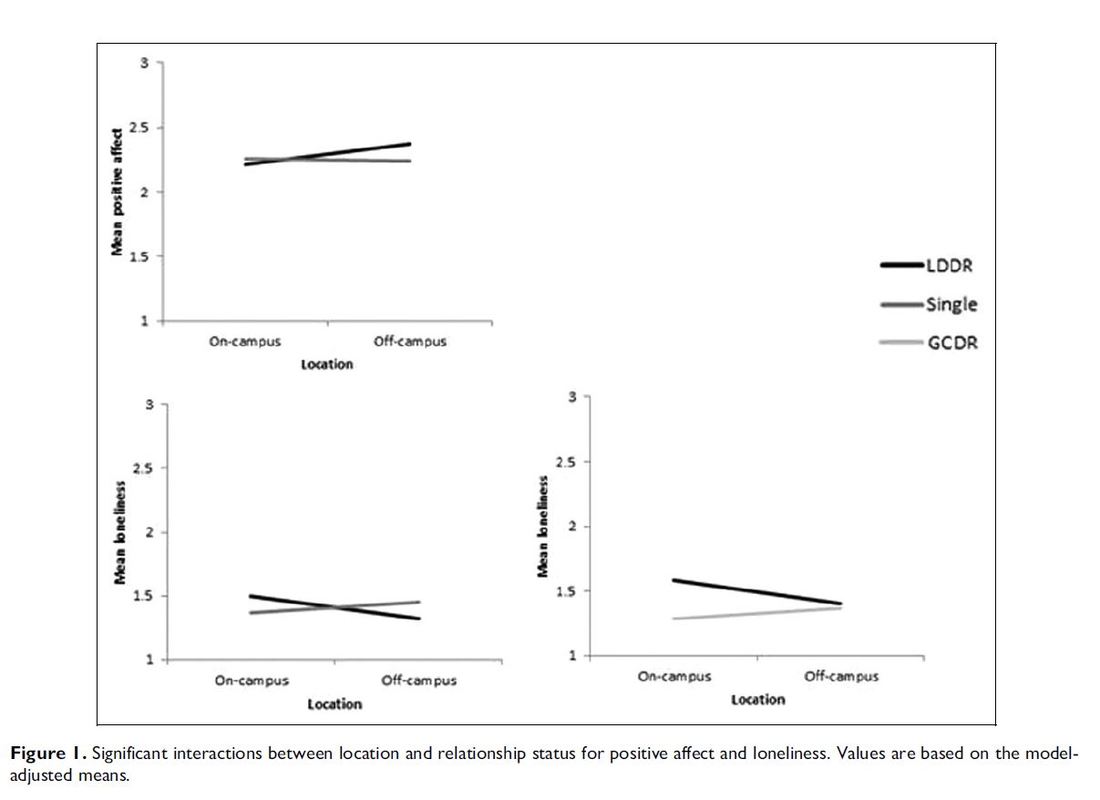Waterman, E. A., Wesche, R., Leavitt, C. E., Jones, D. E., & Lefkowitz, E. S. (2017). Long-distance dating relationships, relationship dissolution, and college adjustment. Emerging Adulthood, 5, 268-279.
Did you start college with a romantic partner “back home”? Do you think that having a partner back home affected your wellbeing at school, your adjustment to college, and/or your engagement in regular college activities?
This paper has an interesting history on how we came about writing it – it’s the most collaborative writing process I’ve ever been involved in. But I think I’ll save those details for another post, and today, just write about the content of the paper.
As part of a special issue on breakups in emerging adulthood, we considered how relationship status and daily location, as well as relationship dissolution, were associated with daily affect and behaviors. First semester college students completed daily surveys of their time use (including whether they were on or off campus, affect, activities, and alcohol use. They also reported whether they were in a romantic relationship, and whether the partner also lived in the same area. We used reports from their first two semesters of their relationship status and relationship length to determine whether they stayed together or broke up, and if they broke up, if they were in a new relationship.
In looking at relationship type at first semester, we found that overall, students had less positive affect and were lonelier on days they were on campus compared to other days. But more specifically, these associations only held for students in long distance dating relationships.
Single students participated in university activities more frequently than students in long distance dating relationships.
Overall, findings suggest that students in long distance dating relationships may have more difficulty adjusting to college life than other students. The innovation of our study over prior work is that we considered location, rather than assessing wellbeing/affect/loneliness at a general level. Thus, our findings suggest that differences in wellbeing (in this case, positive affect and loneliness) between students in LDDRs and other students exist only when they are on campus; when they are off campus they are similar to their peers. For students who started college in LDDRs, wellbeing did not subsequently differ whether they maintained or dissolved these relationships, suggesting resiliency.
“College Students in Long Distance Relationships Feel Worse When on Campus first appeared on Eva Lefkowitz’s blog on July 24, 2018.”


 RSS Feed
RSS Feed
